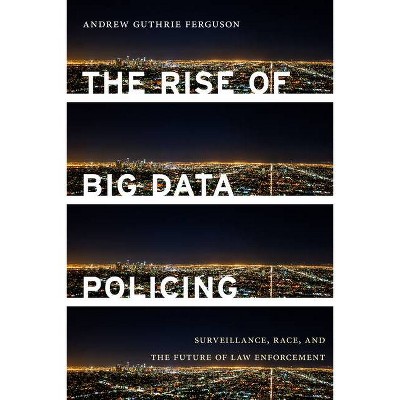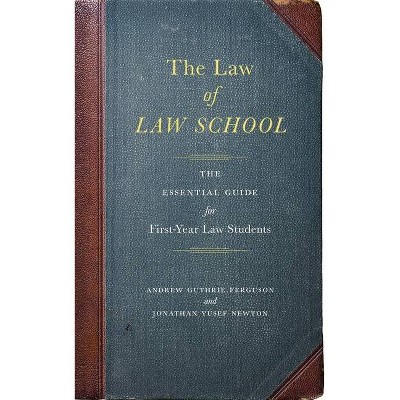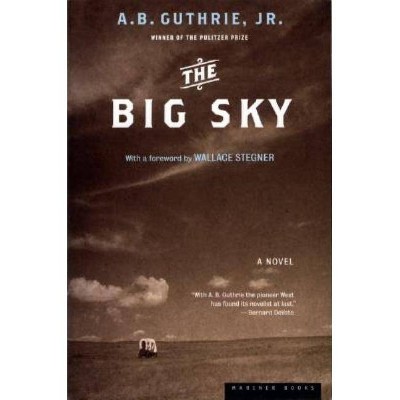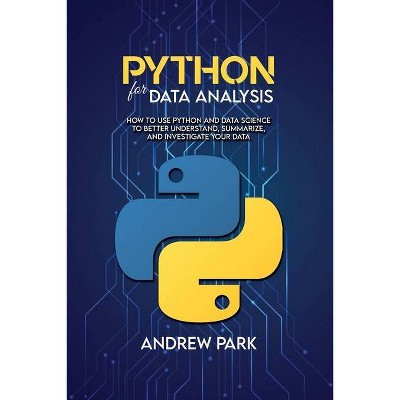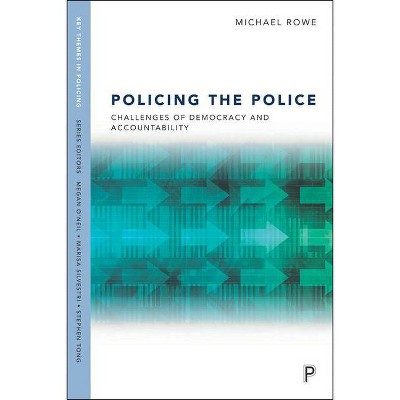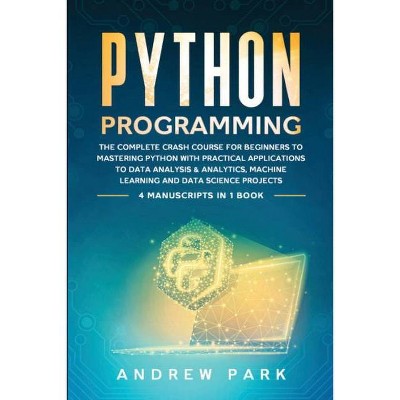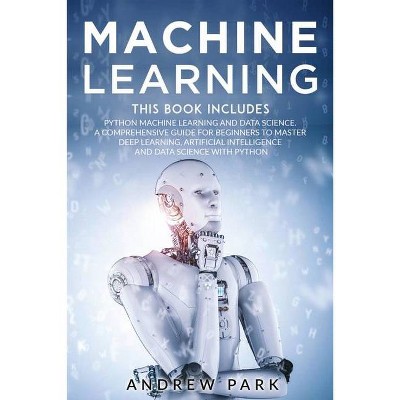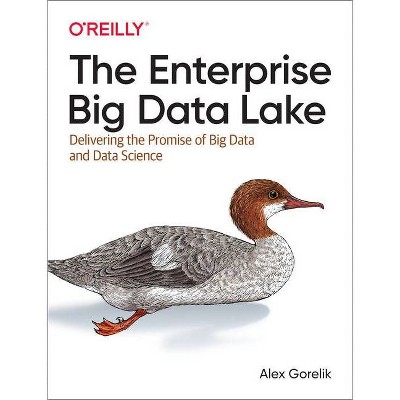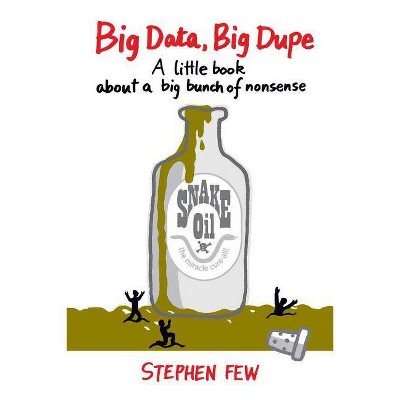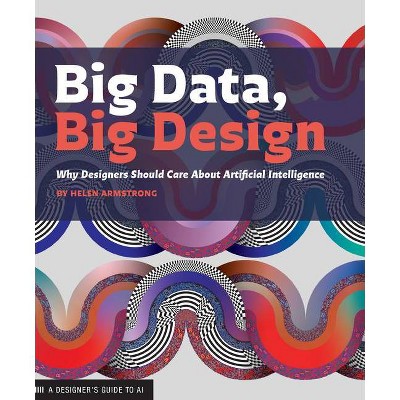The Rise of Big Data Policing - by Andrew Guthrie Ferguson (Paperback)
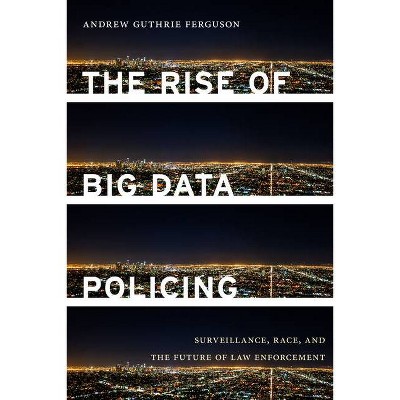
Similar Products
Products of same category from the store
AllProduct info
<p/><br></br><p><b> About the Book </b></p></br></br>"First published in paperback in 2020"--Back of title page note.<p/><br></br><p><b> Book Synopsis </b></p></br></br><p>Winner, 2018 Law & Legal Studies PROSE Award <p/><b>The consequences of big data and algorithm-driven policing and its impact on law enforcement</b> <p/>In a high-tech command center in downtown Los Angeles, a digital map lights up with 911 calls, television monitors track breaking news stories, surveillance cameras sweep the streets, and rows of networked computers link analysts and police officers to a wealth of law enforcement intelligence. <p/>This is just a glimpse into a future where software predicts future crimes, algorithms generate virtual "most-wanted" lists, and databanks collect personal and biometric information. The Rise of Big Data Policing introduces the cutting-edge technology that is changing how the police do their jobs and shows why it is more important than ever that citizens understand the far-reaching consequences of big data surveillance as a law enforcement tool. <p/>Andrew Guthrie Ferguson reveals how these new technologies -viewed as race-neutral and objective-have been eagerly adopted by police departments hoping to distance themselves from claims of racial bias and unconstitutional practices. After a series of high-profile police shootings and federal investigations into systemic police misconduct, and in an era of law enforcement budget cutbacks, data-driven policing has been billed as a way to "turn the page" on racial bias. <p/>But behind the data are real people, and difficult questions remain about racial discrimination and the potential to distort constitutional protections. <p/>In this first book on big data policing, Ferguson offers an examination of how new technologies will alter the who, where, when and how we police. These new technologies also offer data-driven methods to improve police accountability and to remedy the underlying socio-economic risk factors that encourage crime. <p/>The Rise of Big Data Policing is a must read for anyone concerned with how technology will revolutionize law enforcement and its potential threat to the security, privacy, and constitutional rights of citizens. <p/>Read an excerpt and interview with Andrew Guthrie Ferguson in The Economist.</p><p/><br></br><p><b> Review Quotes </b></p></br></br><br>A valuable foundation for understanding how prediction has suffused policing, in much the same way it has suffused the rest of society. Ferguson's criticisms are cogent, but more importantly he communicates clearly a broad factual picture of the situation as it stands today.-- "The Washington Free Beacon"<br><br>Andrew Ferguson has written a path-breaking book about a crucial civil rights struggle of our time. The more law enforcement automates its work, the more minority communities are getting caught in a pernicious web of surveillance and punishment. Ferguson's work is as comprehensive as it is illuminating. A must read.--Danielle Keats Citron, Morton & Sophia Macht Professor of Law, University of Maryland Carey School of Law<br><br>Ferguson has an incredible command of the many subjects that fall under the 'big data' umbrella, and his writing is at its best when social, cultural, and technological dynamics coalesce into one story. The book is particularly strong when Ferguson takes on how classism and racism shape smart policing datasets, which epitomize how 'big data' policing is held back by the many limitations of larger legal structures but is presented as the solution to that very problem.-- "Gizmodo"<br><br>Important and relevant, this book will be indispensable to [anyone] interested in the practice of policing . . . Valuable for the critical civil rights and constitutional issues it raises.-- "Library Journal"<br><br>In an important book that goes to the heart of issues at the forefront of contemporary life, Ferguson examines how police departments are now using supposedly 'objective'data-driven surveillance technologies to work more effectively in a budget-cutting era and to avoid claims of racial bias. In this engaging, well-written narrative, based on studies and a deep understanding of policing, [Ferguson] describes the growing police use of shareddata, its effects on how and where police work, and its usefulness in predicting future criminals . . .Essential reading for anyone who wants to understand how technology is changing American policing.-- "STARRED Kirkus Review"<br><br>In this timely, informative and at times disturbing book, Andrew Ferguson exposes the promises and perils of big data for policing and privacy. This critically important work provides a comprehensive account of how big data can help police solve crime and enhance police accountability and oversight. However, the book simultaneously exposes how the use of big data to inform policing practices can mask, reify and reinforce racial bias under the cloak of objectivity. The Rise of Big Data Policing is a must read for judges, policymakers, advocates, activists, and anyone else who wants to understand what big data is and how it is transforming our criminal justice institutions, the law, and our privacy expectations in surprising and disturbing ways that should concern us all.--L. Song Richardson, Professor of Law and Senior Associate Dean for Academic Affairs, University of California, Irvine<br><br>The case Ferguson makes is inherently interesting and increasingly urgent.-- "Los Angeles Review of Books"<br><br>The first-ever comprehensive overview, The Rise of Big Data Policing strikes an adept balance in covering both the promise and the peril of predictive policing. . . . Fergusons legal expertise serves well as he addresses the dilemma of translating predictions based on data into police remedies and it serves well throughout the other varied topics of this multi-faceted, well-researched book.--Eric Siegel "Big Think"<br><br>The Rise of Big Data Policing shifts our frame of reference on modern policing from the celebration of aggressive patrol tactics to urgent questions of the role new police technologies in the production of security, the risks to freedom, and the levers of social control in the expanding surveillance state. Andrew Ferguson opens a window to define, categorize, understand, and showcase the transformation and digital deregulation of policing, and its implications for liberty and security. Ferguson teaches us not only the fault lines in how police watch us, but how we can turn the tables to use new algorithms to watch the police. At stake is nothing less than individual liberty and the democratic control of policing.--Jeffrey Fagan, Isidor and Seville Sulzbacher Professor of Law, Columbia University<br><br>This is the perfect time to educate the public about the field of predictive policing. The predictive policing methods used today are in adolescence rather than infancy, so they beg for thoughtful reflection and public discussion. Andrew Ferguson is the ideal person for the job!--Jane Bambauer, Professor of Law, University of Arizona<br>
Price History
Price Archive shows prices from various stores, lets you see history and find the cheapest. There is no actual sale on the website. For all support, inquiry and suggestion messagescommunication@pricearchive.us
